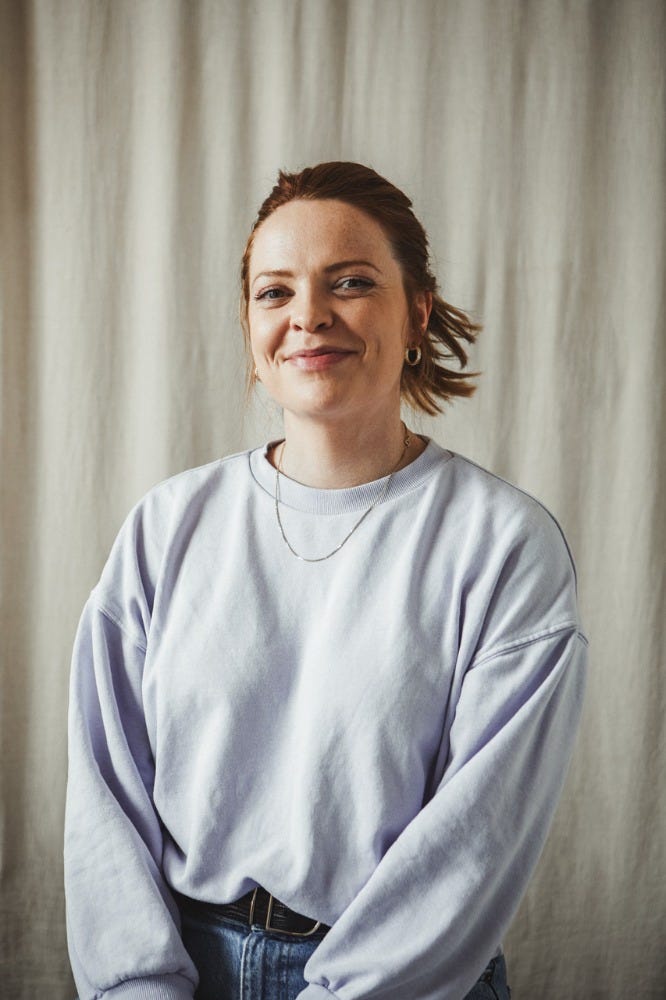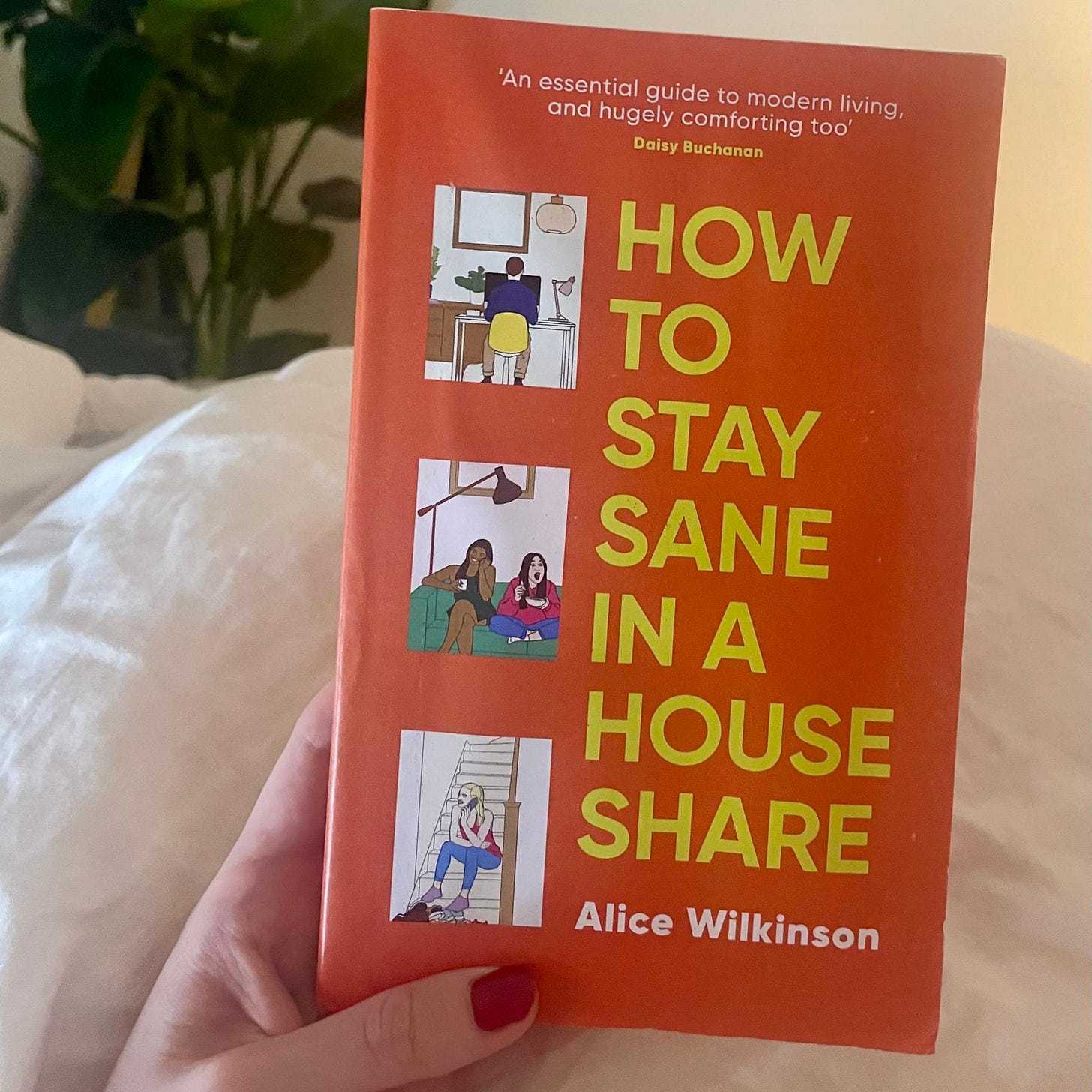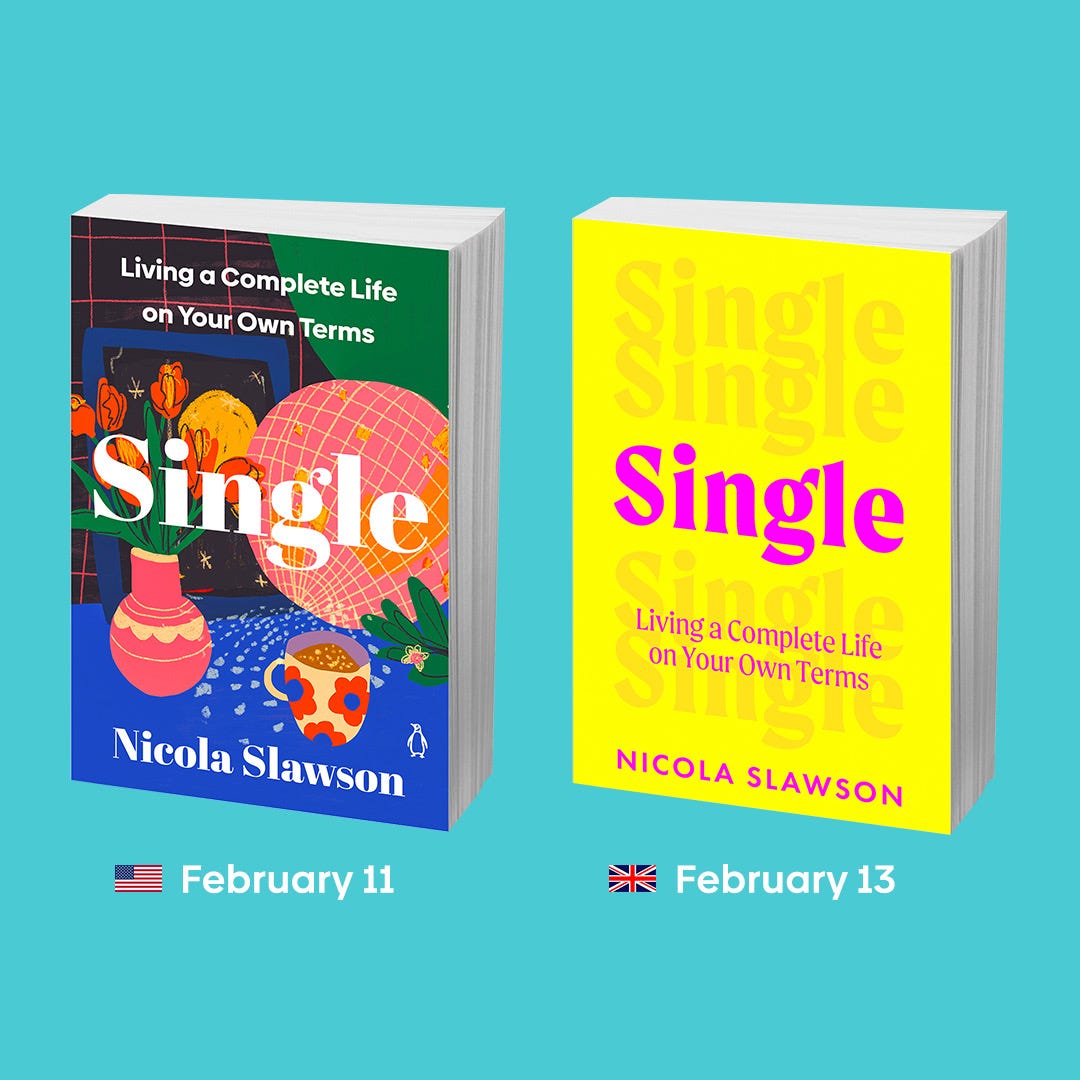I’m putting this newsletter together at my dining room table. Nearby my housemate (and platonic coparent) is pottering around putting vegetables and other ingredients into the slow cooker for tomorrow night. We’re both full from the pumpkin risotto I made for us to share earlier in the evening. Simon and Garfunkel is, quite randomly, playing on my Amazon echo.
It’s a scene I couldn’t have imagined just a couple of years ago when I would tell anyone who would listen how amazing it is to live alone and how I never want to live with anyone again (“If I ever get a partner, I’ll need to get one that’s OK with having separate houses like Helena Bonham Carter and Tim Burton,” I once joked.) Never say never, the saying goes. Now I live with not only Tom but also a 7 month old baby. Life is different. Things have changed. I don’t live alone and in fact hardly ever spend any time alone.
Sometimes I miss my life before when I had the house to myself. Sometimes I even crave it and sometimes I almost mourn it but obviously I don’t wish my current situation away. Aside from the baby, there are also lots of benefits. Some practical such as sharing rent and bills. Some are fun such as always having someone willing to have a kitchen disco with and others are bit deeper than that. It wasn’t until I read this guest piece from Alice Wilkinson, whose first book How to Stay Sane in a House Share is out in March, that I realised I wasn’t alone in how much I have learned from having a housemate.
She writes that she used to think that the only way to really know herself was when she met a romantic partner and I definitely used to think like that. For a long time I then felt like the only way to really know myself was to live alone and you really do get up close and personal with who you really are when you do. But, there are always ways in which you can easily hide away uncomfortable parts of yourself if you live alone. When you have a housemate, it is harder to hide.
Like Alice, I’ve really had to work hard to communicate in a constructive way when something is bothering me – and to see it as a kindness and a chance to connect – rather than my usual shtick of pretending I don’t care about something I actually deeply care about and pushing down my feelings until one day I blow up in a rage. This new way doesn’t come naturally but it is worthwhile. I am finally learning, at the age of 40, how to do this and it’s all thanks to having a housemate / coparent. This echoes a story in the chapter on housing in my book where one of my interviewees
talks about navigating living back with her mum and how she had to have some open and quite challenging conversations and how they would regularly check in with each other on how the set up was going.Anyway I will leave you to read the essay. I wonder whether it resonates with any of you like it did with me? Even if you are experiencing or have had negative experiences with house mates, I bet there is still so much you learned from the experience.
Have a good week,
Nicola
Pre-order my book Single here | Follow me on Instagram: @Nicola_Slawson
At 33, it’s my housemates who have shaped me, as romantic partners do for others

By Alice Wilkinson
I’d recently cut my hair into a short bob with a sweeping fringe when, at 23, I met my first one. I was 24 and a keen runner when I found myself in the epic one. 26 for the toxic one. 29 in the quiet but meaningful one. 32 for the one that started with a slow burn.
You may think I’m talking about my romantic loves. And you’d be forgiven, because that’s a narrative that as society, we are encouraged to fixate on. But I am, in fact, talking about my house shares: the series of relationships that, throughout my twenties and thirties, moulded and challenged me in the ways I’ve listened to others describe their romantic relationships shape them.
People say that dogs start to look like their owners. I’ve observed how couples begin merging their styles, adopting the same turn of phrases and hobbies. These are the things that shift in any relationship when you start referring to yourselves as a ‘we.’
A similar symbiosis happens in house shares. There comes a point when you start investing in the space you share - and each other. First there’ll be offerings of tea and coffee, then you’ll sit down to an occasional meal together. Before long, you find yourself giving and receiving little acts of kindness so specific to the ones you live with, it becomes a love language that only you and that housemate speak. Subtle but significant ways you look after each other. Because in the time you’ve lived together, you have slowly revealed how you need to be cared for, and they want to show that they’ve heard.
It’s happening in my house share now, where I've been living with another woman in her thirties who I met on Spare Room. Ten months in and in conversations about weekend arrangements and our whereabouts, we’ve both tentatively started referring to ourselves as a ‘we.’ ‘Shall we go for dinner after?’ ‘Do we need more cling film?’
It’s a small shift in how we speak that tracks a more significant change: that we are investing in each other. There’s a ‘we’ now - and we matter to each other.
I used to think that the only way to really know myself was when I met a romantic partner. That only when someone fell in love with me in a romantic way - and accepted me for all I am - that I would be able to really show myself, be myself and understand fully all the sides of my personality. Only when I’m coupled up, I thought, would I evolve as a person in this world. I thought I needed the security of a romantic relationship to flourish. There are years I’ve spent in relationships that certainly did bring opportunities for self-development. But I reflect on my twenties now and know for certain that that level of powerful self development is not reserved for romantic love. The people and the relationships that moulded and challenged me the most were with my housemates.
My very first Spare Room foray taught me that it’s a kindness to others to ask for what I need. It was torture approaching a stranger I’d signed a contract to live with and telling him his habits were antisocial and keeping me up at night. I hate the phrase ‘people pleaser’ but it is the only one to describe my identity up to this point. A chronic people pleaser. But these tiny acts of assertion led to a bigger shift where I understood that in order to connect with people and let people care about me, I needed to show them who I was and what mattered to me - even when it meant being negative. It was a wonderful discovery when, most of the time, my housemate there responded positively. He wanted to make my living situation better for me.
In my seventh house share (I am in number eight now), I learned the hard way that if you aren’t honest with someone you care about, you can find yourself at boiling point, saying things you don’t mean. I lived with a friend I’d known for ten years and, in an attempt to keep the peace, I’d stayed quiet about how her dating habits were making me feel unsettled. But then I completely destroyed the peace with an almighty monologue that I can never take back - and often wish I could. One evening, I told her with no detail spared how I felt and I lost a good friend in that house share. It taught me a great deal about conflict. Now I try to see that part of letting someone in involves sharing when they have crossed a line and upset you. It’s uncomfortable, yes, but it’s a kindness - a signal you want to keep them close.
I learned too over the years that it’s OK not to be interesting all the time. That it’s OK and human to want to sit quietly and be around someone, without entertaining them. My fifth house share, the one with women I am still very close to today, where I felt so understood, whatever was happening in my life. Through grief, the type of work stresses that plague you in your twenties, the highs and lows of modern dating, those women could read me. The women I lived with there often sensed things before I could vocalise them. Being deeply understood like that, where you don’t always have to explain yourself, is incredibly freeing and empowering. I hope that one day someone - a partner or a housemate - understands and accepts all the shades and sides of me like that again.
And I learned from all my housemates that life, even among all the twists and turns, is a lot of fun. And that fun can find you whatever state of mind you’re in. Even on days where one of us felt like sulking, there’d be someone who was in good spirits. There were so many laughs, stupid parties, chats on the stairs that were meant to last five minutes and turned into two hours. It was always a joy to get home drunk at 2am and your other housemate at the kitchen table, also drunk, talking complete rubbish. Whatever came at us: pigeon infestations, regular sightings of mice, no hot water: most of the time, we’d find a way to laugh through it.
These are the moments and memories that shaped me. We may well see house shares as transient and temporary but I really believe that the people we live with and the connections made in the intimate setting of a house share make impressions on us that are everlasting.
Alice Wilkinson is a writer, journalist and editor based in London. She writes about house shares, home and belonging in my newsletter ADDRESSING. Her debut book How to Stay Sane in a House Share is out on 6th March 2025 and available to pre-order now.
You can pre-order Alice’s book on Bookshop.org*, Amazon, Waterstones or wherever you usually buy books.
Single (the book) news
Excitingly, I’ve already had my first review for my book. Brit and Co named it as one of their most anticipated books of 2025 and and said:
Readers will find charming and welcoming anecdotes about being single that doesn't feel like trauma dumping. She knows it's not always easy to live a single life, but she doesn't want you to succumb to the idea that it's impossible to find joy.
I also want to thank everyone who commented, messaged or emailed their congratulations about writing a book – and to those who have already pre-ordered, thank you from the bottom of my heart. It means so much. One of my favourite comments was someone saying it was the book they had been waiting for without realising. Links to pre-order are here.
About me
Nicola Slawson is passionate about telling human stories – either other people's or her own – and is a freelance journalist, writer and public speaker based in Shropshire in the UK. The Single Supplement is an award-winning newsletter on Substack, especially for single people. Her debut book Single is out in February and available to pre-order now. Follow Nicola on Instagram.
Did someone forward The Single Supplement to you? Sign up here.
*Disclosure: I am an affiliate for Bookshop.org and have included some links in this newsletter to my store. If you buy books linked to my site, I may earn a commission from Bookshop.org, whose fees support independent bookshops.








I absolutely adored this. I sent it to all my housemates and we all loved it. I'm learning so much about myself and how to relate by being in my latest house share. Can't wait for your book!
Funny, I had an experience of living in a shared space, which got me thinking about the combination of privacy/shared space would work for me. Anyways, here's what I would love to do. https://ideasbigandwild.substack.com/publish/posts/detail/136954873?referrer=%2Fpublish%2Fposts